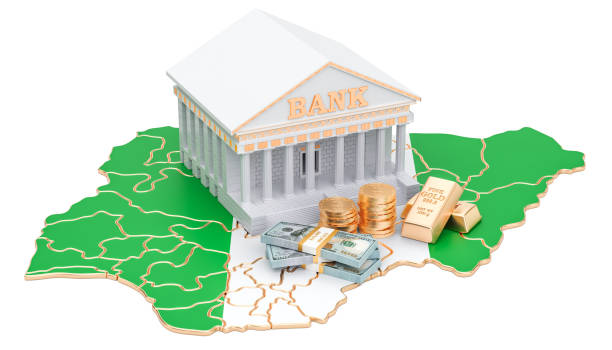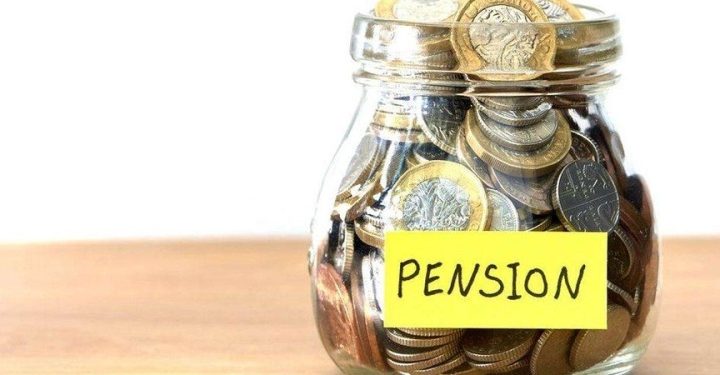The Catastrophe of Leadership Failure
Nigeria’s current economic disaster is not just a random misfortune; it is an unforgivable failure of leadership and governance.
This nation, once brimming with potential and blessed with vast human and natural resources, has been dragged to the edge by corruption, mismanagement, and sheer incompetence.
Join our WhatsApp ChannelThe failure of leadership and governance in Nigeria has transformed what could have been a thriving economy into a cautionary tale.
Oil: A Blessing Turned Curse
The discovery of oil in commercial quantities should have been a blessing for Nigeria, but instead, it became a curse. Before oil became the country’s mainstay, agriculture was the backbone of the economy.
Groundnut pyramids dotted the northern landscape, cocoa thrived in the west, and rubber and palm oil were abundant in the east.
Agriculture once accounted for over 80 percent of the GDP. However, with the advent of oil, this vital sector was deliberately neglected, pushing Nigeria into a mono-economy heavily reliant on crude oil exports.
This dependence on oil has made Nigeria vulnerable to global oil market fluctuations. A drop in oil prices sends shockwaves through an already fragile economy, revealing the failure of leadership and governance that allowed this overreliance to develop.
“What was hailed as an oil boom has now become crippling doom,” a leading economist recently remarked. The government’s inability to diversify the economy has left the nation teetering on the edge.
Missed Opportunities and Fiscal Irresponsibility
Nigeria’s economic history is marred by a cycle of missed opportunities and fiscal irresponsibility. When oil prices are high, the nation enjoys a windfall, but these gains are rarely invested in ways that would benefit ordinary Nigerians.
Instead, they are squandered on projects that either fail to materialize or are riddled with corruption. When oil prices fall, the country plunges into a fiscal crisis, struggling to maintain even the semblance of financial discipline.
The failure of leadership and governance in Nigeria is evident in the government’s inability to break this cycle.
Systemic corruption and mismanagement have plagued the nation for decades, leading to a situation where even the most basic public services are underfunded or non-existent.
This vicious cycle is not just the result of external factors but is deeply rooted in the incompetence of those in power.
The Collapse of Agriculture and Manufacturing
The neglect of agriculture has had a devastating ripple effect on the manufacturing sector. Infrastructural decay, outdated technology, and an influx of foreign goods have turned Nigeria into a dumping ground, crippling local industries.
The continuous devaluation of the naira and the skyrocketing prices of imported raw materials have further strangled the manufacturing sector.
Agriculture, once the backbone of Nigeria’s economy, has been so neglected that it no longer provides the raw materials necessary for manufacturing.
The failure of leadership and governance has cut off a critical supply chain, further exacerbating the economic crisis. Yet, the government remains indifferent, offering no real solutions to these pressing issues.
COVID-19: Exposing the Cracks
While the COVID-19 pandemic exacerbated these problems, Nigeria’s situation was already dire due to years of poor leadership.
The pandemic exposed the weaknesses of Nigeria’s economy, which was already reeling from self-inflicted wounds.
The failure of leadership and governance in responding to the crisis only deepened the economic malaise.
The Path to Recovery: A Leadership Challenge
The road to economic recovery in Nigeria requires bold, decisive action—something Nigerian leaders have consistently failed to deliver. One of the first steps should be to end the importation of refined petroleum products.
Nigeria, an OPEC member with vast oil reserves, should not be importing what it can produce domestically. Yet, the country’s four refineries have been left to rot, while billions of naira have been wasted on failed turnaround maintenance projects.
“A nation like Nigeria, with its vast resources, should not be at the mercy of global oil market fluctuations,” said a former petroleum minister. But the powerful cabals benefiting from importation schemes are deeply entrenched in the government, perpetuating this national disgrace. The failure of leadership and governance is evident in the way these vested interests have been allowed to stunt progress.
To revive the economy, local refineries must be prioritised. Encouraging private refineries to operate alongside public ones could create jobs, stabilise the naira, reduce crime, and boost the GDP. Agriculture, too, must be revived. It is a national embarrassment that Nigeria, with its fertile land, still spends billions on food imports. The failure of leadership and governance has turned a once self-sufficient nation into a beggar on the global stage.
Infrastructure and Policy: Non-Negotiable for Growth
The government must also tackle the infrastructure deficit head-on. Reliable electricity, good roads, and a conducive economic climate are non-negotiable if Nigeria is to attract investment and foster growth. Import substitution should be aggressively pursued, and the importation of non-essential goods should be curtailed.
READ ALSO: Between Creation Of More States And Regional Govt, Which Do We Really Need?
It is an indictment of Nigeria’s leadership that the country still imports basic items like toothpicks. The failure of leadership and governance is evident in the fact that political leaders flaunt imported vehicles while locally assembled alternatives gather dust. Supporting small and medium enterprises (SMEs) is crucial, as they are the backbone of any thriving economy.
Creating an Investment-Friendly Environment
Nigeria must create an investment-friendly environment if it hopes to attract the industries that will drive economic growth. The recent exodus of industries is a clear signal that all is not well. Investors are not attracted by rhetoric but by stability, infrastructure, and a clear path to profitability. Without the right conditions, investors will continue to stay away, and Nigeria will remain trapped in economic stagnation.
Finally, the government must pursue supply-side policies like deregulation, tax cuts, and investment in education, research, and technology. These steps will expand the country’s productive capacity, create jobs, and improve living standards. But this requires a level of leadership and governance that Nigeria has yet to experience.
The Need for Bold Leadership
Nigeria stands at a crossroads. The choice is clear: either embrace transformative change or remain mired in economic stagnation. The future of Nigeria depends on the courage and wisdom of its leaders to make bold decisions and implement effective policies. The failure of leadership and governance has brought Nigeria to this point; only a complete overhaul of the system can save it.
The nation has the resources, the potential, and the people to succeed. But without strong, visionary leadership, Nigeria will continue to be a shadow of what it could have been. The time for excuses is over; the time for action is now.
Emmanuel Ochayi is a journalist. He is a graduate of the University of Lagos, School of first choice and the nations pride. Emmanuel is keen on exploring writing angles in different areas, including Business, climate change, politics, Education, and others.
- Emmanuel Ochayihttps://www.primebusiness.africa/author/ochayi/
- Emmanuel Ochayihttps://www.primebusiness.africa/author/ochayi/
- Emmanuel Ochayihttps://www.primebusiness.africa/author/ochayi/
- Emmanuel Ochayihttps://www.primebusiness.africa/author/ochayi/


















Follow Us